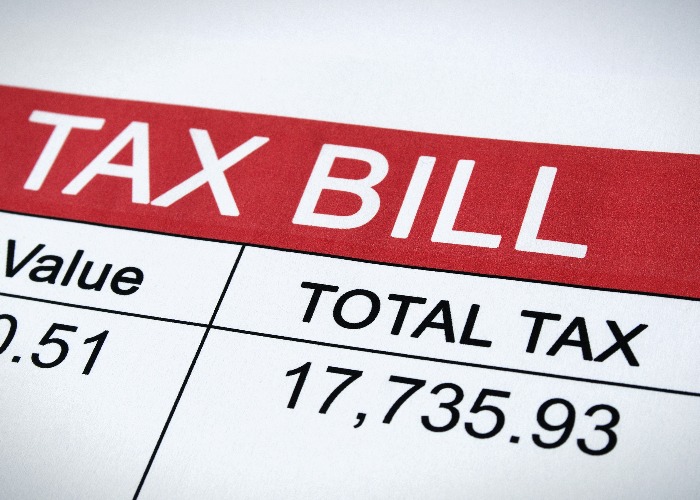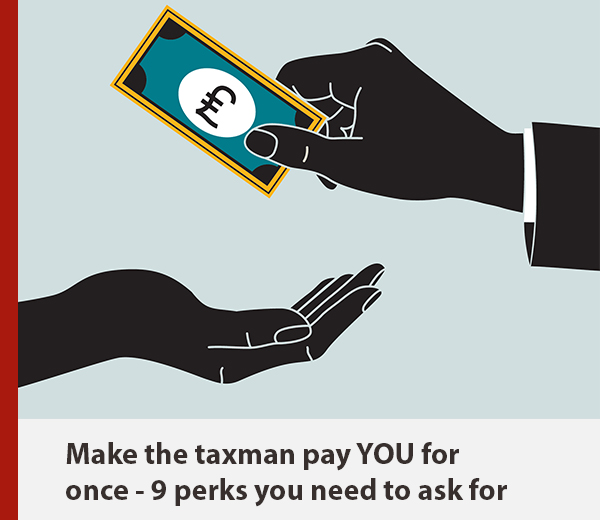Opinion: our convoluted tax system can see some charged up to 100% ‒ it needs fixing

The UK’s tax system is far too complicated, and includes occasions when your marginal rate of tax is too high.
Nobody particularly enjoys paying tax.
While we all understand that tax is important if you want to have public services, from schools to hospitals, it still stings a little when you look at your paycheque and how much is going to the taxman.
The problem is that our tax system is much too complicated, and leading to bizarre examples where the effective rate that we pay is far higher than can really be justified.
Need help sorting your taxes? Try Simply Tax
Paying through the nose for having children
A perfect example is Child Benefit. Back in the days of the Coalition Government, it was decided that Child Benefit should not be paid to all parents.
Instead, it would become somewhat income assessed, with a new High Income Child Benefit Charge for those earning over £50,000.
For each £100 earned above that level, you have to pay back 1% of the Child Benefit you receive.
In essence, if you earn above £60,000 you pay an effective rate of 100% on the child benefit received.
And that’s just the main issue with it, never mind the fact that because it is based on individual incomes you can have a household where both parents work and have a combined salary of £90,000 keeping the benefit, while a single-income household where the worker brings in £60,000 having to pay all of it back.
Need help sorting your taxes? Try Simply Tax
Removing the Personal Allowance
Then there is the Personal Allowance.
It’s an important feature of the Income Tax setup, allowing you to earn a certain amount each year before you have to start paying tax on your income.
It is currently set at £12,570.
However, the allowance starts to be stripped back once you earn above £100,000.
You lose £1 of the allowance for every £2 above £100,000 your net income is, meaning that the entire lot is gone by the time your income reaches £125,140.
As a result, you are essentially paying a whopping 60% tax on that portion of your salary, through losing the Personal Allowance.
Being dragged in
It’s worth remembering that more and more people are going to be dragged into these issues because of the Government’s insistence on freezing tax thresholds.
One of the inevitable impacts of inflation is that our salaries go up.
Indeed, according to the Office for National Statistics growth in average total pay (so including bonuses) grew by 5.8% in the first three months of the year, compared with the same period a year ago.
But the thresholds aren’t moving at all ‒ in fact they have been frozen until 2028.
As a result, there will be some workers who see their pay move above the £50,000 threshold for the High Income Child Benefit Charge and end up having to start paying some of it back.
They aren’t any better off ‒ given the rate of inflation, even if you manage a 5.8% pay hike, that’s actually a 3% drop in real terms ‒ but they also now have an added tax outgoing to account for.
Similarly, there will be people at the higher end who see their incomes grow enough to move into a higher tax threshold, making it questionable if you are really any better off.
This is emphasised by new research from the Institute of Fiscal Studies, which found that back in 1991-2 just 3.5% of adults paid the 40% rate of Income Tax.
By 2022-23 this had hit 11%, and by 2027-28 it will reach 14%. What’s more, some of those will face marginal tax rates of as much as 60%.
Working around the tax system
For all of the ridiculousness of the current setup, the Government isn’t particularly inclined to put things right.
And I’m not sure that it will feature high up on the wish list of an incoming Labour Government, should we get one after the next election.
As a result, it’s up to us to try to work around the current setup, which is far from simple.
There is one option though, in the form of salary sacrifice.
It’s possible to sacrifice a portion of your salary, for example in the form of higher pension contributions, and therefore lower your official salary.
That can help avoid hitting some of these cliff edges. It’s far from perfect, but it can mean you end up with a fairer tax burden than if you rely on the authorities to put things right.
Comments
Be the first to comment
Do you want to comment on this article? You need to be signed in for this feature
